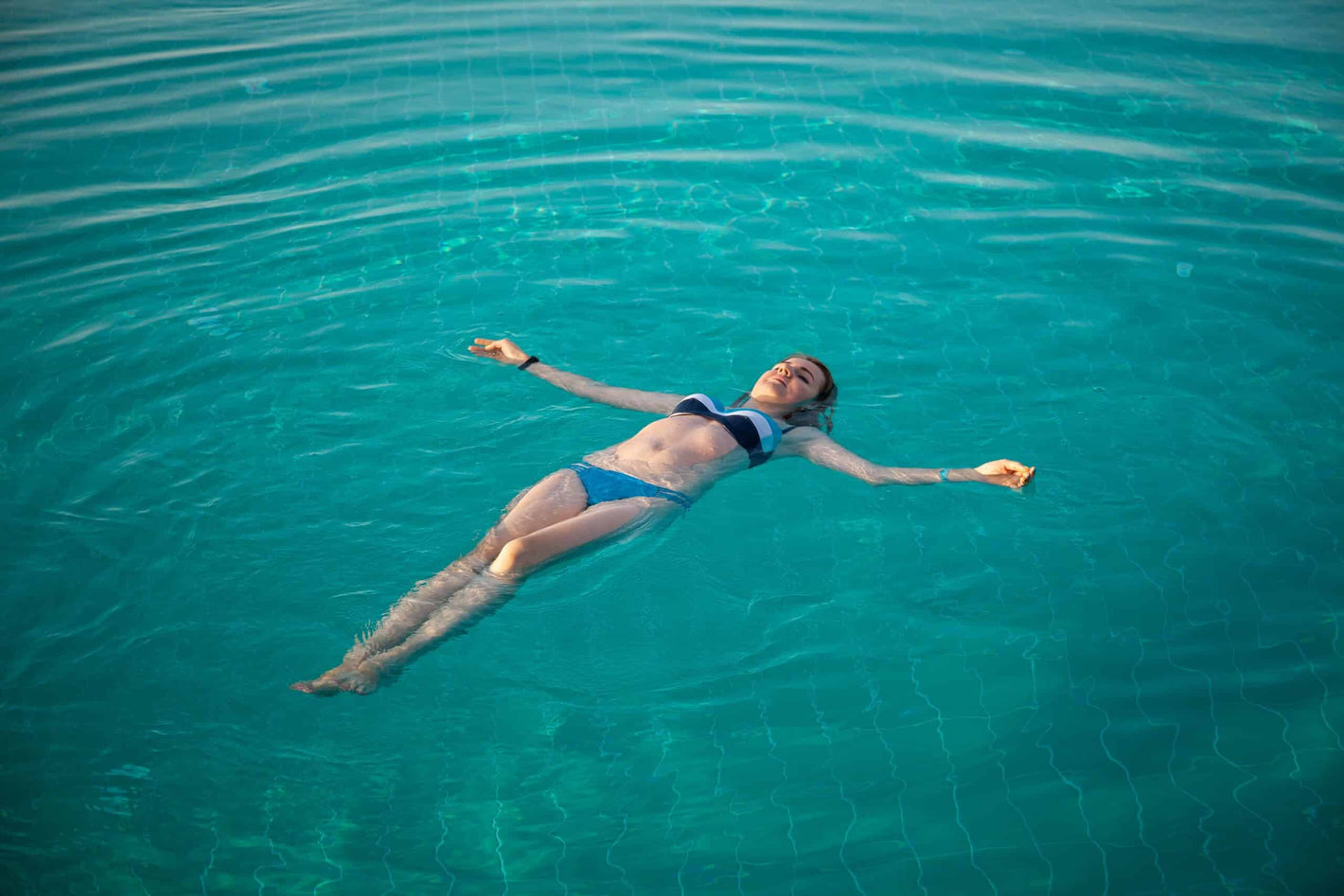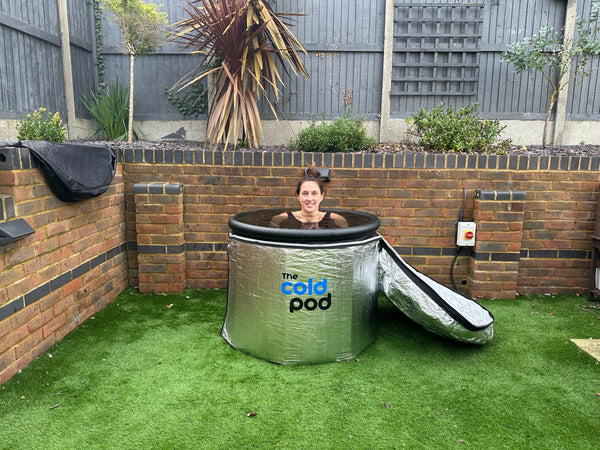In the fast-paced and demanding world we live in, stress has become an unwelcome companion for many. From work pressures to personal responsibilities, it’s no wonder that stress levels are on the rise. Finding effective ways to manage and alleviate stress is crucial for maintaining our physical and mental well-being. While there are numerous stress relief methods available, one powerful and often overlooked solution is cold water immersion.
Understanding Stress and Its Impact on Health
Stress has ingrained itself into modern society and has an enormous adverse effect on both our physical and emotional health. Recognising the value of stress management approaches like cold water immersion requires an understanding of the nature of stress and how it affects our health. Let’s examine the idea of stress and how it affects our general health.
The Nature of Stress:
When faced with a stressful situation, the body activates its stress response, commonly known as the “fight-or-flight” response. This response triggers a cascade of physiological changes designed to help us cope with perceived threats or challenges.
The Effects of Chronic Stress:
Unlike acute stress, which has beneficial effects only for brief periods of time, chronic stress, or continuous stress, can be harmful to our health. Chronic stress is linked to a higher risk of many diseases, including heart disease, sleep disorders, and mental health conditions including anxiety and depression.
The Need for Stress Management Techniques:
Techniques for reducing stress, such as submersion in cold water, can aid in re-establishing equilibrium in the stress-response system and enhance general wellbeing. By incorporating stress-reduction strategies into our daily routines, we equip ourselves to fight stress’s adverse effects and uphold a healthier body and mind.
Understanding the nature of stress and its effects on our health highlights the importance of stress management in our lives.
The Science behind Cold Water Immersion and Stress Relief
We can learn more about how exposure to cold water impacts the body’s stress levels by examining the physiological reactions and mechanisms in action. Let’s delve deeper into the science of cold-water immersion and how it aids in stress reduction.
Activation of the Sympathetic Nervous System:
Sympathetic nervous system activation: The sympathetic nervous system, which oversees the “fight-or-flight” response, is triggered when you submerge yourself in cold water. This activation sets off a chain of physiological adjustments intended to get the body ready for the cold stimulus. Your heart rate increases as a result, your blood vessels tighten, and your blood flow is redirected to your vital organs.
Release of Stress Hormones and Endorphins:
Cold water immersion prompts the release of stress hormones, such as adrenaline and cortisol, which are associated with the body’s response to stress. Additionally, cold water immersion stimulates the release of endorphins, which can contribute to stress reduction and an overall sense of calm and relaxation.
Modulation of Heart Rate Variability:
Heart rate variability (HRV) is a measure of the variation in time intervals between heartbeats. Higher HRV is associated with a more flexible stress response, indicating a greater ability to adapt to stressors. Studies have shown that cold water immersion can positively impact HRV, increasing its variability and promoting a more adaptive stress response.
Cold-Induced Thermogenesis:
Cold water immersion triggers a process known as cold-induced thermogenesis, which refers to the generation of heat by the body in response to cold exposure. During cold water immersion, your body works to maintain its core temperature, which requires increased energy expenditure. The activation of cold-induced thermogenesis during cold water immersion can promote a sense of invigoration and well-being.
By understanding the science behind cold water immersion, we gain insights into how it affects our stress response and promotes stress relief.
Physical Benefits
Cold water immersion not only provides a refreshing experience but also offers a myriad of physical benefits that contribute to stress relief and overall well-being.
Reduction in Inflammation and Pain:
When you immerse yourself in cold water, the blood vessels constrict, reducing blood flow to the affected areas. This constriction helps to reduce inflammation and can alleviate pain associated with sore muscles, joint inflammation, and certain chronic conditions.
Improved Blood Circulation:
As your body adjusts to the cold water, blood vessels constrict, which forces blood to flow more efficiently to vital organs. This increased circulation delivers oxygen and essential nutrients to your tissues, supporting their optimal functioning.
Enhanced Immune System:
The exposure to cold water stimulates the production of immune cells and activates the body’s defence mechanisms. This response helps strengthen the immune system, making it more efficient at warding off illnesses and infections.
Accelerated Recovery and Muscle Repair:
Cold water immersion helps minimise inflammation and speeds up the recovery process after exercise. It constricts blood vessels, reducing swelling and flushing out waste products from the muscles. The cold water also numbs nerve endings, providing pain relief and facilitating muscle repair.
Increased Energy and Alertness:
Cold water immersion awakens your senses, providing a natural source of energy and promoting mental clarity. It can help you feel more alert, focused, and ready to face the challenges of the day.
By immersing yourself in cold water, you tap into a range of physical benefits that directly contribute to stress relief and overall well-being. The reduction in inflammation and pain, improved blood circulation, enhanced immune system function, accelerated recovery, and increased energy levels all work together to support your body’s ability to cope with stress and promote overall physical resilience.
Mental and Emotional Benefits
Cold water immersion offers more than just physical benefits—it also provides profound mental and emotional advantages that contribute to stress relief and overall well-being. Immerse yourself in cold water, and you’ll discover a sanctuary of tranquility and experience a range of mental and emotional benefits.
Mood Enhancement:
Cold water immersion triggers the release of endorphins, which creates a sense of relaxation. This natural elevation in mood can counteract the effects of stress, improve emotional well-being, and promote a positive outlook on life.
Stress and Anxiety Reduction:
The shock of cold water activates the parasympathetic nervous system, inducing a state of relaxation thus reducing stress hormone levels, and calming the mind. Cold water immersion provides a refreshing break from daily stressors, allowing find peace and serenity.
Enhanced Sleep Quality:
Quality sleep is essential for stress reduction and overall well-being. Taking a cold shower or bath in the evening lowers your body temperature, signalling to your body that it’s time to sleep. By incorporating it into your evening routine, you can awaken feeling refreshed and ready to take on the day.
Increased Resilience and Mental Clarity:
Cold water immersion acts as a natural stressor, challenging your body and mind to adapt and overcome. It teaches you to embrace discomfort and develop a stronger mindset whilst sharpening mental clarity and improving cognitive function.
Self-Care and Mindfulness:
Cold water immersion encourages you to be fully present in the moment, embracing the sensations of the cold water on your skin and letting go of external distractions. The practice becomes a ritual of self-care, nurturing both your body and mind.
By immersing yourself in cold water, you unlock a range of mental and emotional benefits that directly contribute to stress relief and overall well-being.
Incorporating Cold Therapy into Your Stress Relief Routine
By making cold water immersion a regular part of our stress relief routine, we can harness its transformative power and promote overall well-being. Here are practical steps to help you embrace the cold.
- Start Gradually and Adapt: Begin your cold water immersion journey by gradually introducing colder water into your showers or baths. This gradual transition helps your body adjust to the cold water and minimises any initial shock. Listen to your body and adjust the duration and intensity of cold water exposure based on your comfort level.
- Find Your Optimal Timing: Some individuals find that starting their day with a refreshing cold shower invigorates their senses and sets a positive tone for the day ahead. Others prefer to take a cold bath or shower in the evening to help unwind and prepare for a restful night’s sleep.
- Explore Alternatives: If traditional cold showers or baths don’t resonate with you, consider exploring innovative solutions such as The Cold Pod. The Cold Pod is a portable ice bath designed for full-body immersion, providing a unique and convenient way to experience the benefits of cold water therapy. This versatile product can be used indoors or outdoors, offering a private and comfortable space for full-body cold immersion.
- Contrast Showers: Contrast showers involve alternating between hot and cold water, providing a gentler introduction to cold water therapy. Start with a warm or hot shower for a few minutes to relax and open up your pores, then switch to cold water for a shorter duration. Repeat this cycle a few times, ending with a cold burst.
- Be Consistent and Listen to Your Body: Incorporate cold water immersion into your routine on a regular basis to maximise its benefits. Consistency allows your body and mind to adapt and reap the full rewards. However, always listen to your body’s needs and give yourself rest days if required.
By following these practical steps, you can seamlessly incorporate cold water immersion into your stress relief routine. Whether you choose traditional cold showers, explore The Cold Pod, or experiment with contrast showers, the key is to be consistent and attentive to your body’s needs.
Safety Precautions
While cold water immersion offers numerous benefits for stress relief, it’s crucial to prioritise safety when incorporating this practice into your routine. By taking necessary precautions and understanding potential risks, you can ensure a safe and enjoyable experience.
- Assess Your Health: Before starting cold water immersion, assess your overall health and any underlying medical conditions. If you have any other health concerns, consult with your healthcare professional to determine if cold water immersion is safe for you. Individuals with conditions such as Raynaud’s disease should exercise extra caution.
- Gradual Adaptation: Allow your body to acclimate to the cold gradually by starting with mildly cool water and slowly decreasing the temperature over time. Listen to your body’s signals and avoid pushing yourself beyond your comfort level.
- Avoid Extreme Cold: It’s important to avoid exposing yourself to extremely prolonged periods of cold immersion, as this can increase the risk of hypothermia. Pay attention to signs of shivering, numbness, or uncontrollable shaking. If you experience any of these symptoms, immediately warm yourself up and seek medical attention if necessary.
- Hydration: Stay well-hydrated before and after cold water immersion to support your body’s natural processes. Hydration helps optimise your body’s response to the cold and minimise potential risks.
- Outdoor Cold-Water Immersion: If practicing cold water immersion outdoors, be aware of the environment and potential hazards. Choose safe and designated locations, such as natural bodies of water with lifeguard supervision or controlled settings like The Cold Pod.
By considering these safety considerations and taking necessary precautions, you can make your cold-water immersion experience safer and more enjoyable. Remember, cold water immersion is meant to be a refreshing and invigorating practice, but safety should always be the top priority.
Conclusion
Incorporating cold therapy into your stress relief routine can bring about remarkable benefits for your physical, mental, and emotional well-being. With consistency and mindfulness, you can embrace the transformative power of cold-water immersion and experience a more balanced, stress-free life. So, take the plunge and unlock the path to a healthier and more vibrant you.







